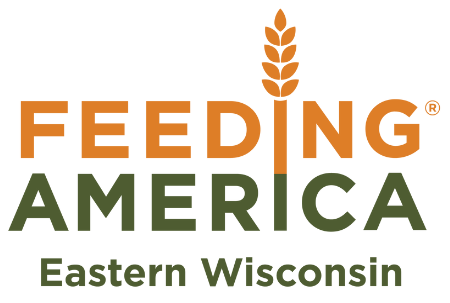Partnerships Broaden Access and Understanding
 Native Americans face some of the highest rates of food insecurity. In fact, 1 in 4 Native Americans struggle with hunger and report having limited access to sufficient, affordable food. Because of this we are working with Feeding Wisconsin and a number of other organizations, including Tribal partners, on the Tribal Elder Food program.
Native Americans face some of the highest rates of food insecurity. In fact, 1 in 4 Native Americans struggle with hunger and report having limited access to sufficient, affordable food. Because of this we are working with Feeding Wisconsin and a number of other organizations, including Tribal partners, on the Tribal Elder Food program.
The program not only ensures tribal members have the food that they need and desire, but makes certain that we also help these communities strengthen their food systems. Food is purchased from indigenous-based and regional food producers. Feeding America Eastern Wisconsin volunteers package boxes that contain items like beef, bison, fish, chicken, pork, greens, apples, berries, corn, beans, squash, potatoes, tomatoes, and other seasonal produce representative of traditional, Indigenous foods.
“It’s been one of the most exciting projects I have worked on in my whole professional career,” says Jennifer Falck, Environmental Health Director at Oneida Tribe of Indians of Wisconsin. “We thought it was huge and then it got a lot bigger this year. (Elders) are very appreciative of the food, but are also excited to have access to food that can be very difficult for them to access.”
During the Tribal Elder Food Box pilot program in 2021, over 10,000 boxes of food were distributed to tribal elders of seven tribal nations biweekly from June through December. The second round of Tribal Elder boxes serves all 11 Wisconsin tribal nations and will result in 40% more boxes (a total of roughly 25,000) being distributed in 2022. For everyone involved, it’s been exciting to watch the program—which is now being looked at as a national model by Feeding America—grow.
“The Tribal Elder Food Box program is a prime example of innovation and community engagement that addresses hunger and food insecurity for some of the most vulnerable tribal citizens in Wisconsin,” says Mark Ford, Director of Native and Tribal Partnerships at Feeding America.
“This project incorporates a model of collaboration and coordination with the other food banks and local tribal community leaders which promotes shared power and ownership with the Native Nations in the state. Other food banks from around the nation are looking to the Tribal Elder
Food Box program as a model for building stronger partnerships with the tribes and Native communities they serve.”
Collaborators: Feeding Wisconsin, Department of Agriculture, Trade and Consumer Protection, healthTIDE, UW-Madison, Wisconsin Food Hub Cooperative, Bad River Band of Lake Superior Chippewa, Forest County Potawatomi, Ho-Chunk Nation, Lac Courte Oreilles Band of Lake Superior Chippewa, Lac du Flambeau Band of Lake Superior Chippewa, Red Cliff Band of Lake Superior Chippewa, Oneida Nation, Menominee Nation, Sokaogon Chippewa Community (Mole Lake Band of Lake Superior Chippewa), St. Croix Chippewa Indians of Wisconsin, and Stockbridge-Munsee Community Band of Mohican Indians.

